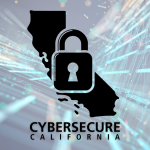Summer is nearly here, and with it comes the rise of one of the most convincing cyber scams we’ve seen: fake travel confirmations.
These phishing emails are designed to look like legitimate messages from trusted companies – Expedia, Delta, Marriott, and more – and they’re catching even tech-savvy people off guard. But the risk doesn’t stop with your vacation plans. For California businesses that handle travel bookings for staff, these scams can pose a serious financial and cybersecurity threat.
How the Scam Works
1. A Fake Confirmation Email Arrives
You receive what looks like a legit travel update:
- “Your Hotel Reservation Has Been Confirmed – Click to View Details”
- “Flight Itinerary Change – Action Required”
- “Complete Your Rental Car Booking Now”
It includes logos, formatting, and sometimes even spoofed phone numbers from known companies.
2. You Click the Link
You’re redirected to a professional-looking but fake website that asks you to log in, confirm your payment method, or download an itinerary.
3. Your Credentials or Payment Info Are Stolen
Hackers either:
- Capture your login and take over your travel or email accounts.
- Steal your credit card data.
- Install malware that compromises your device, and possibly your company’s network.
Why This Scam Works So Well
- It looks legitimate – Real logos, proper grammar, familiar branding.
- It triggers urgency – “Trip confirmed” or “flight changed” makes you act fast.
- It hits when people are distracted – Especially during travel planning or busy workdays.
- It targets more than just individuals – Business travel managers and executive assistants are prime targets.
A Business Risk in Disguise
If you or your employees travel for work, you’re likely receiving a flood of confirmation emails – hotels, flights, rental cars, conference bookings. Scammers count on this.
A single click from someone in charge of reservations could:
- Expose a company credit card.
- Compromise access to business travel accounts.
- Introduce malware into your systems.
How to Protect Yourself and Your Team
✅ Go Direct
Always type in the travel company’s website manually instead of clicking links in confirmation emails.
✅ Check Email Addresses Closely
Scammers use addresses like support@deltacom-booking.com instead of the real @delta.com.
✅ Train Employees
Anyone handling travel bookings or expense reports should know how to spot fake travel emails.
✅ Use Multifactor Authentication (MFA)
Protects critical accounts even if a password is stolen.
✅ Secure Business Email
Ensure your organization uses email security tools that detect malicious attachments and suspicious domains.
Travel Season Shouldn’t Be Breach Season
Cybercriminals know when your guard is down. Summer travel scams like these are designed to slip through when you’re busy or distracted. If your business handles travel logistics, it’s time to double-check that your defenses are in place.
If you’re unsure how protected your team really is, Synergy Computing, Inc. is one of the trusted cybersecurity providers helping California businesses strengthen their security posture year-round.
👉 Click here to schedule a FREE Cyber Risk Assessment with Synergy Computing

